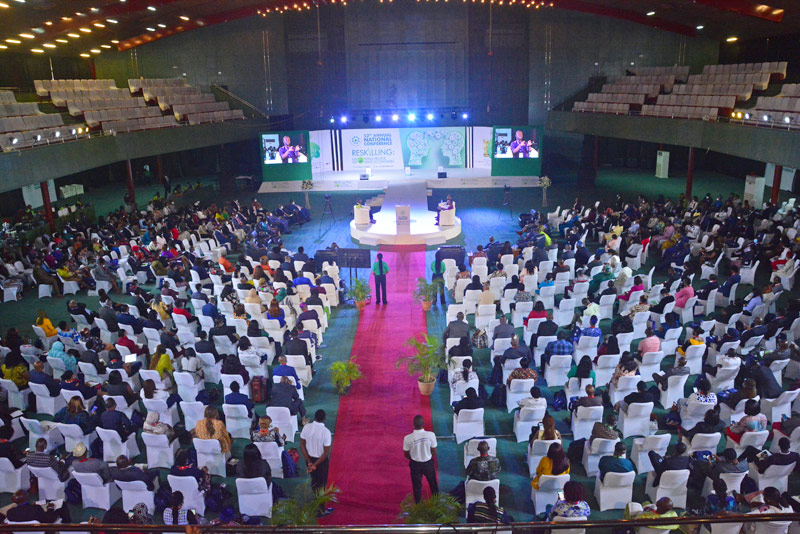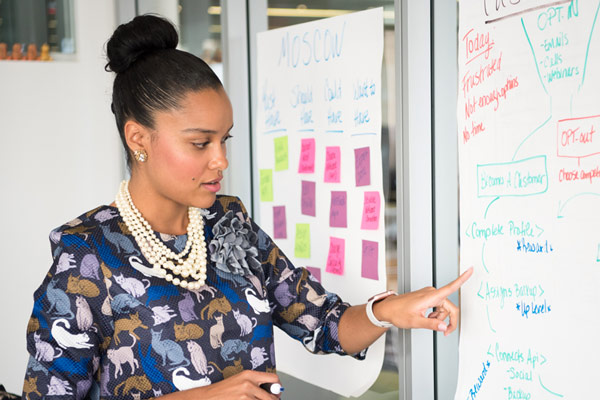Theme: MENtality @ Work: Men, Mind, and Meaning
1. The Silent Struggles of Men
- “We have created a world where men are expected to always be providers, protectors, and strong, never showing vulnerability. But this expectation has taken a toll on how men live and work every single day.” — Mr. Stanley Eluwa, MCIPM
- “The greatest battles are not the ones we see — they are the unseen battles fought in the minds of the average man.” — Mr. Stanley Eluwa, MCIPM
- “Society places heavy roles on men — to be breadwinners, protectors, leaders, and superheroes who never show emotion. But behind these expectations are silent struggles. Many men carry pressure they cannot voice in an economy that demands more than their strength can hold.” — Dr. Habila Amos, FCIPM
- “Men struggle with suicidal thoughts because they do not speak. Stress, depression, substance abuse, and financial pressure sit heavily on their shoulders yet stigma keeps them silent.” — Mr Stanley Eluwa, MCIPM
- “No man wants to be seen as someone who cannot provide for his family. So they hide their pain, and the silence becomes dangerous.” — Mr. Stanley Eluwa, MCIPM
Lesson: Men face immense, often invisible pressures. Awareness and empathy are critical in workplaces and society to support men’s mental health.
2. Mental and Emotional Wellbeing at Work
- “They are very important lifestyle pillars for every human being, and they contribute significantly to shaping our mindset. We must make the workplace a place of comfort for our men. The more comfortable a man feels, the more productive he becomes.” — Mr. Ayodeji Bankole-Olusina
- “Creating a truly conducive environment — one that feels like home — brings out the best in him.” — Mr. Ayodeji Bankole-Olusina
- “Respect is equally important. We must eliminate toxicity in the workplace so that a man feels he can be vulnerable and still be valued.” — Mr. Ayodeji Bankole-Olusina
- “What kind of Employee Assistance Programme do you have? Is it focused only on productivity? Because when mental health is compromised, productivity is compromised too.” — Mr. Ayodeji Bankole-Olusina
- “Mental health must become a priority at work. Create space for open conversations, support systems, and environments where people feel seen and safe.” — Mr. Ayodeji Bankole-Olusina
- “Invest in wellbeing. Sponsor more social events. Build connection. A healthier mind creates a healthier workforce.” — Mr. Ayodeji Bankole-Olusina
- “Employees need social support and emotional stability. Prioritise the emotional state of your people — it matters just as much as their skills.” — Mr. Ayodeji Bankole-Olusina
- “Be conscious of holistic wellbeing. HR must design programmes that address the total wellbeing of employees, especially men who often hide their struggles.” — Mr. Ayodeji Bankole-Olusina
- “When emotional wellbeing is nurtured and demonstrated at work, the whole organisation thrives.” — Mr. Ayodeji Bankole-Olusina
Lesson: Holistic wellbeing — mental, emotional, and social — must be integrated into workplace culture. Employee support structures and safe environments are key to productivity and retention.
3. Self-Care, Mindfulness, and Lifestyle
- “Have a routine. Create time for prayer, meditation, and something that lifts your spirit. Move your body — even a 30-minute walk around your neighbourhood can reset your mind.” — Dr. Habila Amos, FCIPM
- “Take care of your body. Learn to say no. Men must learn to soro soke — speak up and set boundaries.” — Dr. Habila Amos, FCIPM
- “Practice mindfulness. Don’t react in haste; slow down. When you feel triggered, pause, breathe, and reset.” — Dr. Habila Amos, FCIPM
- “Surround yourself with good friends and supportive family. Unwind. Rest. Do not overwork or stretch your body beyond its limit.” — Dr. Habila Amos, FCIPM
- “There is no superman. There is no superhuman. There is only a man doing his best within his limits.” — Dr. Habila Amos, FCIPM
- “Men, take care of yourselves. Rest, use wisdom, and seek support when you need it. Your wellbeing is your longevity.” — Dr. Habila Amos, FCIPM
Lesson: Self-care, mindfulness, and boundaries are essential strategies for mental and physical wellbeing. Men must prioritize their own health to thrive in work and life.
4. Gender Roles and Workplace Balance
- “There are long-standing traditions and gender roles placed on men — at home, in the workplace, and across society. These expectations grow out of our beliefs and culture: men must be breadwinners, protectors, financial providers; they must be strong, assertive, unemotional, decisive leaders who never falter.” — Dr. Habila Amos, FCIPM
- “Yet behind this façade of strength lies a quiet struggle. Many men carry the weight of these expectations in an economy that stretches them thin, all while being told that seeking help is a sign of weakness.” — Dr. Habila Amos, FCIPM
- “At work, when formulating policies or setting direction, balance is essential. Too often, decisions are skewed toward one gender.” — Mr. Ayodeji Bankole-Olusina
- “To achieve true balance, we must consider the people our decisions affect, listen to their needs, and ensure all perspectives are heard.” — Mr. Ayodeji Bankole-Olusina
- “Organisations must ask themselves how they develop gender-balanced policies. As we drive DEI initiatives, we must invest equally in both women and men to achieve balance. A fair and equitable approach ensures organisations grow with justice, clarity, and purpose, driving activities and decisions in the right direction.” — Mr. Stanley Eluwa, MCIPM
Lesson: Organisations must create gender-balanced, equitable policies that account for the needs of both men and women, supporting fairness and sustainable growth.
5. Lifelong Growth, Purpose, and Engagement
- “You can learn and engage in new skills at any stage of life. Retirement is not a reason to sit idle — you can mentor, teach, and continue contributing.” — Mr. Ayodeji Bankole-Olusina
- “What does old age mean to you? That is a question each of us must answer for ourselves.” — Mr. Ayodeji Bankole-Olusina
- “The second most productive years of our life are the ten years between 60 and 70. You can retire from a job, but never retire from work. Retirement is simply hanging up the old uniform and stepping into a new purpose.” — Dr. Habila Amos, FCIPM
- “We need to create meaning in our lives. Ask yourself: what is my purpose on earth? Every person must have a purpose that gives direction. Whatever work we do, we should seek to find meaning in it and consider how it contributes to a larger purpose and to humanity. HR has a vital role in helping people connect with this central purpose. HR must assist people to find purpose in what they are doing.” — CIPM Past president, Dr. Oladimeji Alo, FCIPM
- “Make yourself relevant and active—always seek to acquire new skills. As a man, plan for your life after official retirement. God has given us talents and relationships that can keep us engaged and thriving well into our 80s.” — CIPM Past president, Dr. Oladimeji Alo, FCIPM
Lesson: Lifelong learning, mentorship, and finding purpose are key to personal fulfillment and sustaining meaningful contributions throughout life.
6. Leadership, Mentorship, and Family
- “To men, the role of a man in life is to be available and accessible. This is a 24-hour responsibility, but it must be carried out with wisdom. Within that availability, find time to live a balanced life—because all aspects of your well-being are important. For those in positions to make decisions, act with empathy, compassion, and kindness. Ensure that everything you do and every policy you create reflects these values.” — Mr. Ayodeji Bankole-Olusina
- “We must show our children that love and discipline can coexist. Be an active participant in their lives. As leaders, understand that leadership is not about domination—it’s about collaboration. Create a workplace environment where trust, empathy, and safety exist, allowing people to thrive. Think about how you can mentor the younger generation and give back. Maintain a healthy mind and check on your overall well-being. HR, please look out for the men—men are critical.” — Mr. Stanley Eluwa, MCIPM
- “As solution providers, mentors, and coaches, let us ensure we take care of our health and well-being, even as we fulfill the roles God has entrusted to us.” — Mr. Adeyemi Ajayi, FCIPM
- “We need to find a way to talk to ourselves more—as men.” — Immediate past President, Mr. Olusegun Mojeed, FCIPM, fnli
Lesson: Leadership and mentorship require empathy, self-care, and active engagement with both family and workplace communities. Men must model wellbeing while guiding others.
Summary of Key Lessons
- Men face hidden pressures that affect their health and productivity.
- Mental and emotional wellbeing is as important as professional skills.
- Workplaces must be safe, supportive, and conducive to comfort and productivity.
- Gender-balanced policies and DEI initiatives are essential.
- Self-care, mindfulness, and routines support physical and mental health.
- Lifelong learning and purpose sustain engagement and fulfillment.
- Leadership, mentorship, and family involvement require balance, empathy, and role modeling.




